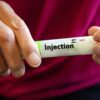Welcome to the FDA Recalls and Warnings Update, a series dedicated to keeping you informed about the latest medication recalls, manufacturing violations, and quality concerns affecting your prescriptions. In this installment, we’re highlighting recalls for these prescription ophthalmic (eye) medications: Azelastine, Brimonidine Tartrate/Timolol Maleate, Ketorolac Tromethamine, and Timolol Maleate. All of the recalls in this installment have been assigned a “Class II” level by the FDA (see below for definitions of types of recalls).
How to Read This Report
This report is prepared using the most recent information posted in the FDA’s Enforcement Reports Database (for recalls), Warning Letters Database (for warning letters), and Drug Imports Alerts Database (for drug importers subject to import bans). Not all new entries to the databases are included in this report. Selected entries are chosen based on the type of product and the potential safety impact of the recall or warning.
Recall announcements and warnings are simplified to improve clarity and accessibility. In some cases, additional sources such as company statements, FDA press releases, and industry publications may provide further details. The primary sources for this report include:
Recalls (Enforcement Reports Database)
The Food and Drug Administration (FDA) categorizes product recalls in its Enforcement Report database based on the level of health risk, labeling them as Class I, II, III, or “not yet classified.”
While the database includes drugs, food, cosmetics, medical devices, biologics, tobacco, and veterinary products, this report only covers selected drug recalls.
- Class I recalls are the most serious. In these situations, there is “reasonable probability that the use of or exposure to a product will cause serious adverse health consequences or death.”
- Class II recalls are for drugs that may cause temporary or medically reversible adverse health consequences or where use of the product is unlikely to result in serious adverse health consequences.
- Class III recalls are the least serious. Use of the product is not likely to cause adverse health consequences.
Warning Letters (Warning Letters Database)
Drug manufacturers, supplement companies, and medical device makers may receive a Warning Letter from the FDA if they commit serious violations of federal regulations. This letter comes from an overseeing FDA office, such as the Center for Drug Evaluation and Research. Common violations include poor manufacturing practices, false product claims, selling misbranded items, or marketing unapproved products. The letter gives the recipient a chance to correct the issues and requires a response, usually within 15 days.
Drug Imports Alerts Database
FDA Import Alerts notify field staff and the public when the agency has enough evidence to detain products without physical examination (DWPE) due to suspected violations of FDA laws, including violations of “current good manufacturing practices for finished pharmaceuticals” or unapproved new drugs. The violations lists are arranged by type of violation, then by country and then by the importing company. In some cases, Import Alerts may be linked to Warning Letters for issues like manufacturing violations.
Drug Recalls
Azelastine HCl Ophthalmic Solution
Company: Apotex
Manufacturing Location: Toronto, Ontario, Canada
Scope: 105,456 Bottles (0.05%, 6 mL)
Drug Description: Relieves symptoms associated with allergic conjunctivitis (itchy, red, swollen eyes due to allergies).
Recall Reason: Lack of assurance of sterility
Recall Initiation Date: May 28, 2025
Link: FDA Enforcement Report
This is a supplier-level recall and is not directed at consumers. However, consumers may wish to check the enforcement report for the list of affected product lot numbers and expiration dates.
Brimonidine Tartrate/Timolol Maleate Ophthalmic Solution
Company: Apotex
Manufacturing Location: Toronto, Ontario, Canada
Scope: 6,000 bottles (0.2%/0.5%, 15 mL)
Drug Description: Treats glaucoma
Recall Reason: Lack of assurance of sterility
Recall Initiation Date: May 28, 2025
Link: FDA Enforcement Report
This is a supplier-level recall and is not directed at consumers. However, consumers may wish to check the enforcement report for the list of affected product lot numbers and expiration dates.
Ketorolac Tromethamine Ophthalmic Solution
Company: Apotex
Manufacturing Location: Toronto, Ontario, Canada
Scope: 87,840 bottles (0.5%, 10 mL)
Drug Description: Relieves symptoms associated with allergic conjunctivitis (itchy, red, swollen eyes due to allergies). Also treats postoperative inflammation associated with cataract surgery.
Recall Reason: Lack of assurance of sterility
Recall Initiation Date: May 28, 2025
Link: FDA Enforcement Report
This is a supplier-level recall and is not directed at consumers. However, consumers may wish to check the enforcement report for the list of affected product lot numbers and expiration dates.
Timolol Maleate Ophthalmic Eye Drops
Company: FDC Limited (distributed by Rising Sun Pharmaceuticals)
Manufacturing Location: Aurangabad, Maharashtra, India
Scope: 154,176 bottles of 5 mL (0.5%) and 60,428 bottles of 10 mL (0.5%)
Drug Description: Treats glaucoma
Recall Reason: Defective cap and container; the spike of the cap may lodge in the nozzle, preventing the solution from being dispensed
Recall Initiation Date: July 5, 2025 (5 mL); April 18 (10mL)
Link: FDA Enforcement Report (5 mL) and FDA Enforcement Report (10 mL)
This is a supplier-level recall and is not directed at consumers. However, consumers may wish to check the enforcement report for the list of affected product lot numbers and expiration dates.






